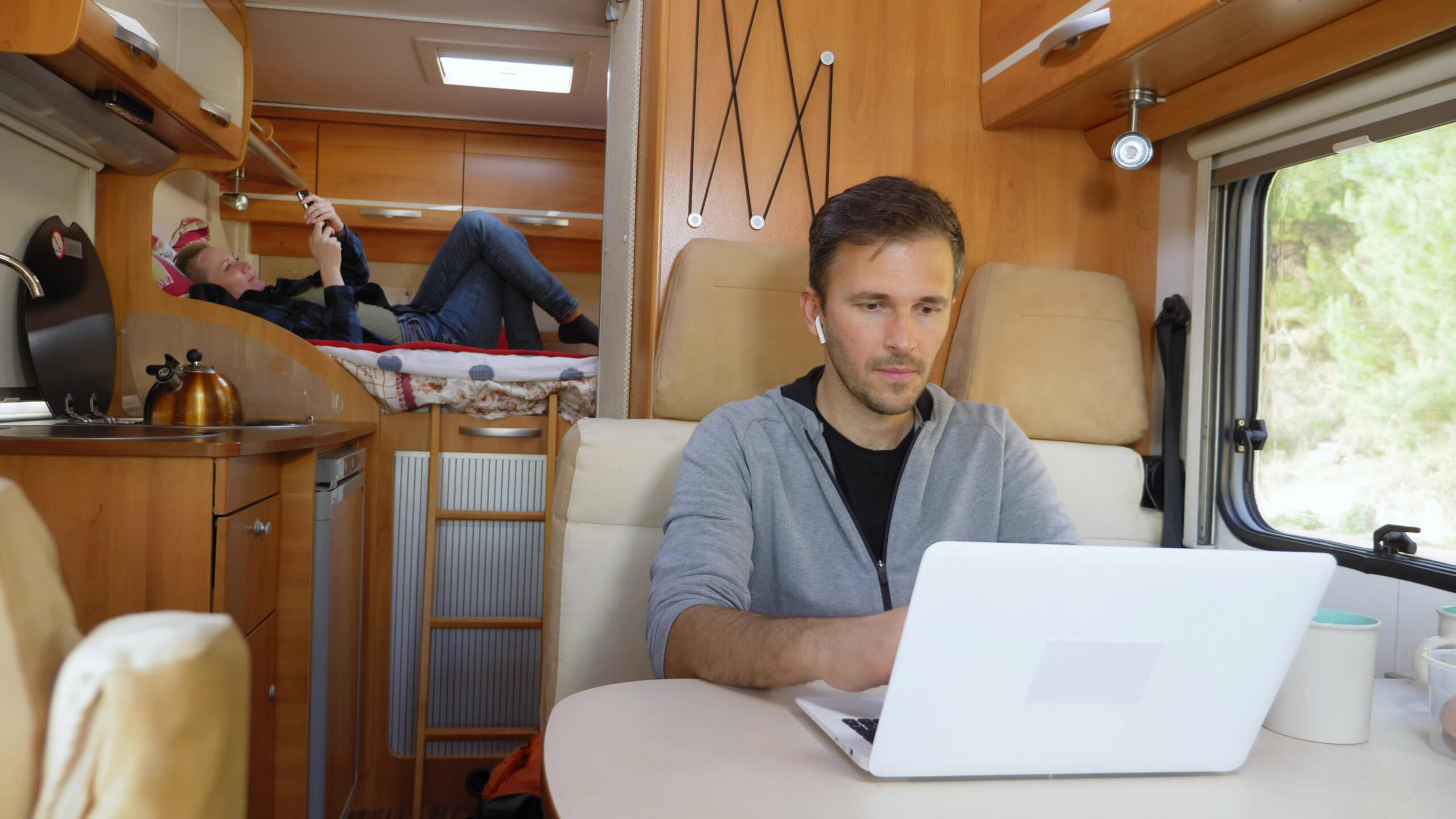Perhaps you work remotely and enjoy traveling while simultaneously bringing home a consistent paycheck. Perhaps you don’t have any personal space in your home and need a separate location at which to conduct your work. An RV can be an attractive solution for both types, whether you’re an employee or an entrepreneur. This article will seek to answer some common questions regarding using your RV for business purposes.
Q: Can I use my RV as a home office?
A: The simple answer is, absolutely! You can dedicate a particular area in the RV for your office needs if you’re on the road (check out these ways of incorporating a work space in your RV), or you can choose to use the entire RV as your office if it’s set up in your front or back yard. If you have electricity and internet access, then you can easily work remotely from this location.
Q: How do I manage internet and electricity?
A: We can reasonably assume that any remote job, whether you’re employed or self-employed, will require the use of a computer and a connection to the internet. If you are hooked up to power at a campground or at your home, then you don’t need to rely on your RV’s house batteries; however, all that time can add up quickly. You can supplement by investing in solar panels and lithium-ion batteries or a portable power station. As for internet, the options include standard providers such as AT&T and Verizon and using your phone as a hotspot, satellite internet, Starlink, and more. Each option has its own upfront and monthly expenses. A Wi-Fi extender or booster may also be needed to help increase speed, so that nothing slows you down when you need it most.
Q: Can I take the home office deduction?
A: Home office deductions only apply to self-employed businesses where you are not an employee. And even then, this can get tricky. Seeing as most if not all of us utilize the RV for personal use as well, the answer is no. To take the home office deduction, a home office must be space exclusively used for your job. If you share that space with anything else, such as a kitchen counter that is used for food prep, then this is not exclusive space. In smaller RVs, everything is pretty much in one space, even if you have a dedicated corner for work. The square footage of your desk is typically not worth it for taking the home office deduction (it’s based on square feet). The exception is a toy hauler or bunkhouse, where that area can be converted into a dedicated home office space – and that’s its only use.
Q: Can I deduct expenses?
A: You can deduct expenses for a self-employed business regardless of where you have a home office. Again, this does not apply to remote hourly or salary employees. You can deduct a portion of electricity, internet, and cell phone bills (utilities), as well as any physical assets or office supplies (including office furniture) you may have needed to purchase to do your job well. Marketing/advertising expenses and software/cloud-based platforms such as websites and bookkeeping are also deductible. Keep detailed logs of these expenses as they are itemized during tax time and may be needed by you in the future if you undergo an audit.
Q: Are there any other tax considerations?
A: Not related to using your RV for a home office or primary business location, but if you can claim your RV as a second home, you may be able to deduct loan interest, just as we do mortgage interest. A second home as defined by the IRS needs to have sleeping, cooking, and bathroom facilities.
Q: How can I create an office space in my RV?
A: Although you may not qualify for tax deductions since the RV is not exclusively used for business, you still need to think about the best place to set up your workstation so that you can work productively during business hours. For smaller RVs where you share space, converting a corner might provide you with the cozy hamlet that you need. Keep supplies in a handy storage bin that can be easily taken in or out as needed. A dropdown desk from the wall can be one way to utilize space, rather than taking up the dinette. If you have a larger RV such as a toy hauler, make the garage your own office space, complete with office furniture. Just keep in mind the weight of the materials as you make your plans. Be creative and resourceful!

